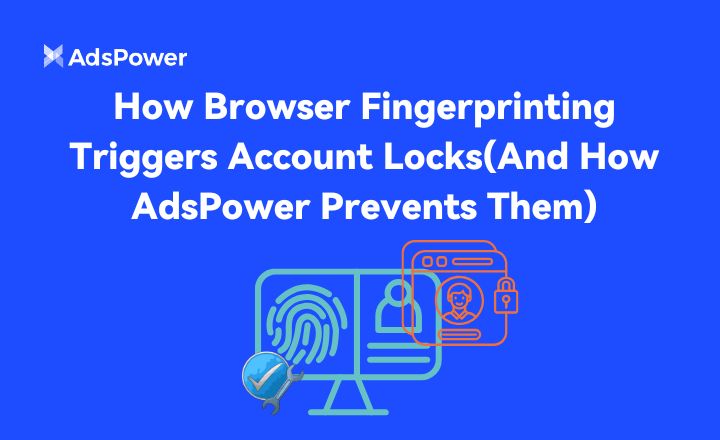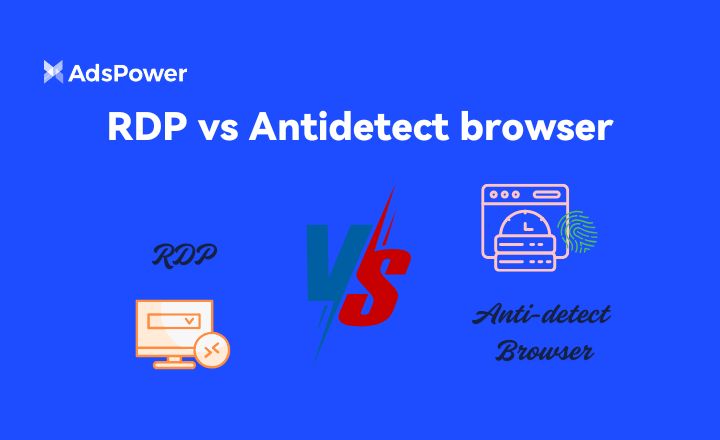Цифрове зняття відбитків пальців та перетворення IP-адреси на цілі числа: захист вашої конфіденційності в Інтернеті
Чи знаєте ви, що у квітні 2023 року понад 5 мільярдів людей, що становить 64,6% населення світу, користувалися Інтернетом? Очікується, що до 2025 року ця кількість досягне 4,95 мільярда!
Однак, оскільки в Інтернеті стає все більше людей, виникають побоювання щодо того, як відстежується їхня активність. Фактично, 79% американців турбуються про те, як компанії використовують їхні дані, особливо через кіберзагрози та порушення безпеки даних. Цілком зрозуміло, чому люди сьогодні надають пріоритет захисту своєї особистої інформації та конфіденційності в Інтернеті.
Зі зростанням поширеності кіберзагроз та порушень безпеки даних важливо розуміти важливість захисту нашої особистої інформації та збереження нашої конфіденційності під час перегляду Інтернету. Давайте заглибимося в кілька концепцій, щоб допомогти вам краще зрозуміти, як захистити свою конфіденційність в Інтернеті.
Цифрова іменна табличка, яка слідує за вами всюди: розуміння цифрових відбитків пальців
Цифрові відбитки пальців – це метод, який використовується для відстеження користувачів на різних веб-сайтах, не покладаючись виключно на файли cookie чи IP-адреси. Це стосується унікального набору характеристик, які відрізняють одного користувача від іншого на основі конфігурацій його пристрою та браузера. Це включає різні точки даних, такі як IP-адреса, тип браузера, операційна система та інша інформація, що стосується пристрою. У сучасному світі, де наше життя все більше переплітається з технологіями, вкрай важливо розуміти концепцію цифрового відбитка пальця та його вплив на конфіденційність в Інтернеті.
Як веб-сайти шпигують за вами
Одним з головних питань щодо цифрових відбитків пальців є те, як їх можна використовувати для відстеження та моніторингу онлайн-активності людей без їхнього відома чи згоди.
Цифрове зняття відбитків пальців – це метод, який використовує різноманітні фактори, такі як пристрій, який ви використовуєте, браузер, який ви використовуєте, та налаштування, які ви налаштували, для створення унікального ідентифікатора вашого пристрою. Цей ідентифікатор потім можна використовувати для відстеження вашої онлайн-активності на різних веб-сайтах та онлайн-сервісах. Це ніби вони надають вам цифровий іменний бейдж, який супроводжує вас всюди, де ви перебуваєте в Інтернеті.
Веб-сайти можуть збирати ці дані різними способами
Файли cookie: Файли cookie – це невеликі файли, які зберігаються на вашому пристрої, коли ви відвідуєте веб-сайт. Вони можуть бути використані для відстеження вашої активності та налаштувань перегляду.
Пікселі відстеження: Пікселі відстеження – це крихітні невидимі зображення, вбудовані у веб-сайти та онлайн-сервіси. Їх можна використовувати для відстеження вашої активності в Інтернеті та ідентифікації вашого пристрою.
Методи зняття відбитків пальців браузера: Методи зняття відбитків пальців браузера використовують різноманітні фактори, такі як встановлені вами плагіни, увімкнені шрифти та роздільна здатність екрана, яку ви використовуєте, для створення унікального ідентифікатора вашого пристрою.
Ці дані потім використовуються для різних цілей
Цільова реклама: Цільова реклама – це практика показу реклами, яка відповідає вашим інтересам. Це робиться шляхом відстеження вашої активності в Інтернеті та використання даних для створення профілю ваших інтересів.
Профілювання користувачів: Профілювання користувачів – це практика збору інформації про користувачів, такої як їхні інтереси, демографічні дані та онлайн-активність, з метою створення їхнього профілю. Ці дані потім можна використовувати для показу їм реклами, покращення взаємодії з користувачем або прийняття інших рішень щодо того, як з ними взаємодіяти.
Спостереження: Спостереження — це практика моніторингу діяльності людей без їхнього відома чи згоди. Це може бути зроблено для різних цілей, таких як правоохоронна діяльність, національна безпека або маркетинг.
Конвертація IP-адреси в ціле число
IP-адреси (інтернет-протокол) – це унікальні числові мітки, що призначаються пристроям, підключеним до комп’ютерної мережі. Ці адреси служать ідентифікаторами, що дозволяють надсилати та отримувати пакети даних між пристроями. Однак IP-адреси також можуть розкривати конфіденційну інформацію про місцезнаходження та онлайн-активність людини.
Перетворення IP-адреси в цілі числа – це метод, який використовується для перетворення IP-адрес у числові значення, відомі як цілі числа. Цей процес перетворення включає перетворення чотирьох наборів чисел в IP-адресі в одне числове значення. Перетворення IP-адреси на ціле число ускладнює для неавторизованих осіб або організацій відстеження або ідентифікацію певних користувачів.
Причини, чому вам може знадобитися перетворити IP-адресу на ціле число
Основна мета перетворення IP-адрес на цілі числа полягає в підвищенні конфіденційності в Інтернеті, ускладнюючи для третіх осіб відстеження особи цифровий слід. Під час перегляду інтернету кожен відвідуваний веб-сайт залишає після себе слід даних, які можна використовувати для створення профілю поведінки та вподобань користувача. Цю інформацію потім можна використовувати для цільової реклами або навіть у зловмисних цілях.
Перетворення IP-адрес у цілі числа може бути корисним для:
- Пошуку певної IP-адреси в діапазоні, наприклад, усіх IP-адрес у певній підмережі.
- Сортування списку IP-адрес, що може бути корисним для таких завдань, як налагодження або аналіз мережевого трафіку.
- Зберігання IP-адрес у базі даних. Як згадувалося раніше, зберігання IP-адрес у вигляді цілих чисел займає менше місця, ніж їх зберігання у вигляді рядків.
- Виконання математичних операцій над IP-адресами, таких як обчислення відстані між двома IP-адресами.
Цифрова маскування - збереження вашої анонімності
Перетворюючи IP-адресу на ціле число, користувачі можуть захистити свою конфіденційність в Інтернеті, маскуючи свою справжню особу та місцезнаходження. Коли веб-сайти або онлайн-сервіси отримують ціле число замість фактичної IP-адреси, їм значно важче точно відстежувати активність користувачів.
Крім того, перетворення IP-адреси на ціле число також допомагає анонімізувати інтернет-трафік. Інтернет-провайдери (ISP) часто призначають динамічні IP-адреси, які періодично змінюються. Перетворюючи ці динамічні IP-адреси на цілі числа, користувачі можуть ефективно приховувати своє місцезнаходження в режимі реального часу від потенційних підслуховувачів або трекерів.
На що ще звернути увагу?
Важливо зазначити, що хоча перетворення IP-адреси на цілі числа забезпечує додатковий рівень захисту конфіденційності в Інтернеті, воно не є безвідмовним. Розширені методи відстеження все ще можуть ідентифікувати користувачів за допомогою інших засобів, таких як відбитки браузера або файли cookie. Тому доцільно поєднувати перетворення IP-адреси в цілі числа з іншими заходами підвищення конфіденційності, такими як використання браузерів з антидетектором.
Браузери з антидетектором, такі як AdsPower, – це тип програмного забезпечення, яке можна використовувати для зміни вашого цифрового відбитка. Цей відбиток – це унікальний набір характеристик, які можна використовувати для ідентифікації вашого пристрою та браузера. Змінюючи свою IP-адресу, агент користувача, файли cookie, JavaScript та інші характеристики, ви можете запобігти відстеженню вашої активності та ідентифікації веб-сайтами.
Залишайтеся прихованими на видноті
Покращення конфіденційності в Інтернеті має бути головним пріоритетом у сучасному взаємопов’язаному світі. Це стосується не лише людей, які турбуються про свою особисту інформацію, а й суспільства в цілому. Високий рівень конфіденційності в Інтернеті дозволяє нам контролювати наші дані, захищати себе від потенційних кіберзагроз та зберігати наше фундаментальне право на конфіденційність у цифровому світі. Тож не будьте звичайним користувачем Інтернету, візьміть на себе відповідальність та насолоджуйтесь безпечнішим онлайн-досвідом.

Люди також читають
- Як відбиток браузера спричиняє блокування акаунтів (і як AdsPower цьому запобігає)

Як відбиток браузера спричиняє блокування акаунтів (і як AdsPower цьому запобігає)
Чому невідповідність браузерних відбитків призводить до банів і як двоядерна архітектура AdsPower з нативною мобільною емуляцією захищає ваші профілі
- 8 найкращих альтернатив Whoer у 2025 році (інструменти для точної та приватної перевірки IP-адрес)

8 найкращих альтернатив Whoer у 2025 році (інструменти для точної та приватної перевірки IP-адрес)
Шукаєте альтернативу Whoer.net? Ознайомтеся з нашим списком 8 найкращих інструментів для перевірки IP-адрес за 2025 рік для точного аналізу конфіденційних відбитків пальців та покращеної онлайн-ресурсу.
- Для чого використовується WebRTC? Чи розкриває WebRTC вашу IP-адресу?

Для чого використовується WebRTC? Чи розкриває WebRTC вашу IP-адресу?
Дізнайтеся, що таке WebRTC, для чого він використовується, чи розкриває він вашу IP-адресу та як захиститися за допомогою таких інструментів, як режими WebRTC від AdsPower.
- RDP проти Antidetect Browser: у чому різниця та який з них безпечніший?

RDP проти Antidetect Browser: у чому різниця та який з них безпечніший?
Ви використовуєте RDP чи браузер Anti-Detect для керування своїми обліковими записами? Перевірте відмінності між RDP та браузером Anti-Detect та як їх підібрати.
- Розбір того, що таке User Agent: компоненти UA та як їх знайти

Розбір того, що таке User Agent: компоненти UA та як їх знайти
Дізнайтеся, що таке агент користувача, його компоненти та як знайти рядок UA вашого браузера, у цьому блозі.


